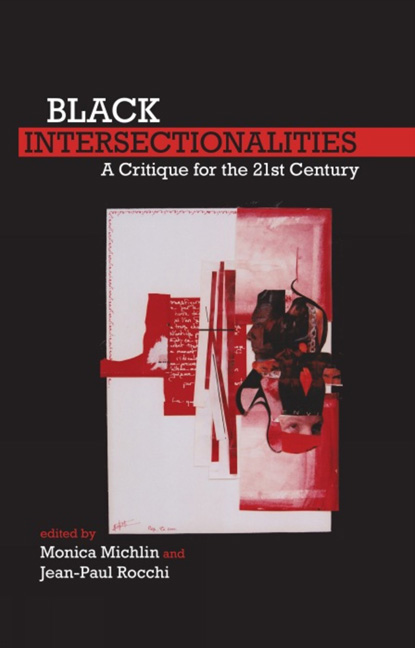Book contents
- Frontmatter
- Contents
- 1 Introduction: Theorizing for Change: Intersections, Transdisciplinarity, and Black Lived Experience
- 2 Exordium: Writing and the Relation: From Textual Coloniality to South African Black Consciousness
- I Challenging Hegemonic Gender Identities
- II Nonconformity and Narrative heorizing
- III Upsurges of Desire
- IV Epistemological Genealogies and Prospections
- Contributors
- Index
2 - Exordium: Writing and the Relation: From Textual Coloniality to South African Black Consciousness
- Frontmatter
- Contents
- 1 Introduction: Theorizing for Change: Intersections, Transdisciplinarity, and Black Lived Experience
- 2 Exordium: Writing and the Relation: From Textual Coloniality to South African Black Consciousness
- I Challenging Hegemonic Gender Identities
- II Nonconformity and Narrative heorizing
- III Upsurges of Desire
- IV Epistemological Genealogies and Prospections
- Contributors
- Index
Summary
This chapter situates the subject of fiction, and the subject as writer of fiction, simultaneously. Between the two, a third emerges – the subject as critic – offering the reader a triple reading of a triple writing. It is a moment whereby to trace the trace, to trace the historical trajectory of a historical trajectory, requires that both the subject of the fiction and the subject as writer of fiction lay themselves bare on the page – reveal everything – and the critic binds and unwinds, untying the strings of history at different threads, unraveling the hidden, the forbidden, and the repressed that lie within writing. But it is the writing of the colonized that I am concerned with here – the writing of the English language in South Africa that is traced through its colonial history: a history that legislated that South Africans were British subjects until 1961, and removed them from the British Commonwealth in 1962 – the year that I was born – yet where a British system of education remains firmly intact, to this very day.
The trace is not a thread to be pulled for the purpose of evidence to make its claim. The trace is the historical trajectory, which the subject asserts as the presence of absence, as part of the subject's history that was forced to truant outside her writing, and that which she now inscribes as present.
Coming of Age through Writing. The Child Subject and the Adult Subject: The Agency of Their Letters
“Textual coloniality” – the operation and functioning of coloniality within the pages of the subject's reading – the colonized subject – she who is instructed to read and write in the language of her colonizer; she who reads, within the very formulation of the words with which she speaks her existence, within the very form and structure of the rules of the language that would only let her play if she abides by its diction. Textual coloniality thrusts itself, by law, upon the very tongue of her verbal communication because the instructed pronunciation punishes her native tongue with her as an accomplice to the crime, within the very landscape of her imagination – where if she speaks the language she upholds the civilization of that language.
- Type
- Chapter
- Information
- Black IntersectionalitiesA Critique for the 21st Century, pp. 21 - 34Publisher: Liverpool University PressPrint publication year: 2013

